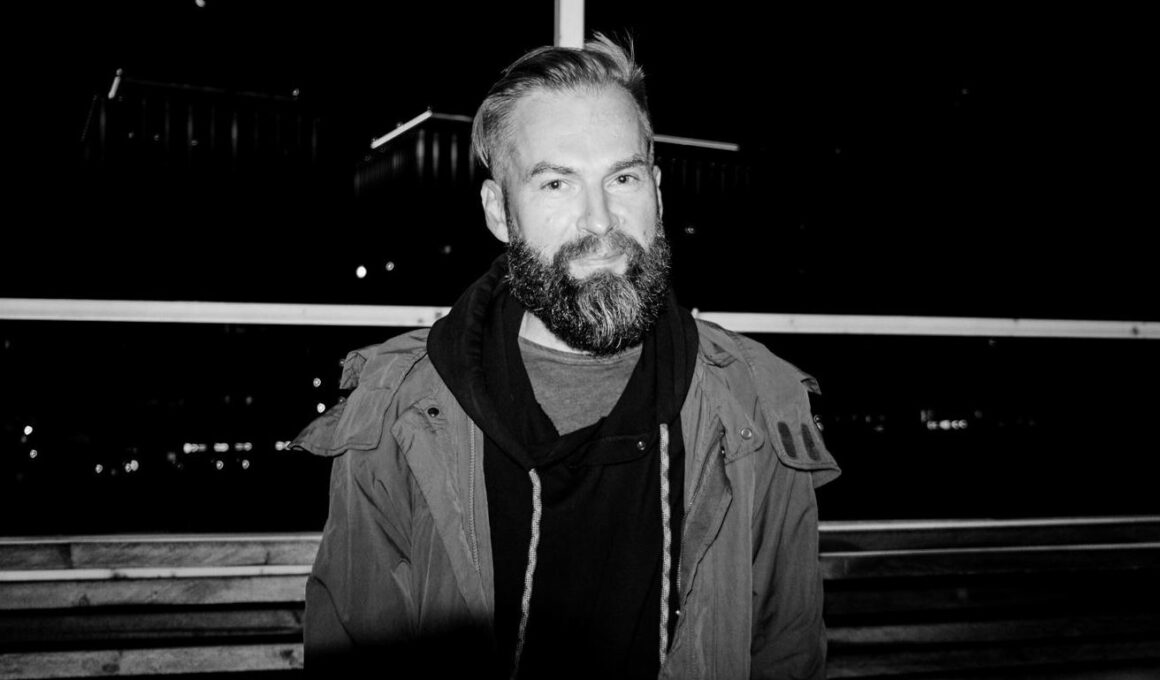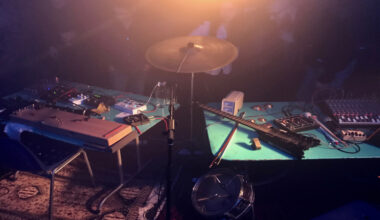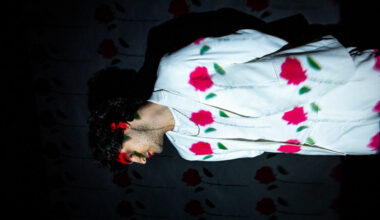Vlad Dobrovolski is a composer and artist from Moscow. In the works of Vlad Dobrovolski, the curiously elaborated use of language is particularly striking. This evident not only in his choice of titles but also in the composition of the sound sculptures and audios themselves. With his idiosyncratic syntax and grammar, Vlad juxtaposes diverse elements to create an antithetical sound language informed by pop aesthetics, dadaist collage and both nostalgic and futuristic strategies. His is a world that is complex and eclectic, yet at the same time playful, multilayered, dense, and invariably compelling.
FACTS:
1: An artist elevates the audience in revelation.
2: Bliss is a strange feeling of joy, has no reason or motive.
3: We almost never listen to the sound of a dog barking.
QUESTIONS:
1. What is the biggest inspiration for your music?
Life flows in and out and envelops us. Life worries us. Life does not let you calm down and beats with a key and a fountain inside. You open this source and change. Through the heart, the music is at your fingertips. The music falls over your head and into your feet.
2. How and when did you get into making music?
It started back in the 80s, when I played at parties at school on reel-to-reel tape recorders. Then I bought an Altair 321 russian analog synthesizer from a friend. Through these devices, I began to learn synthesis and produced simple tape loops. Though at that time I had no idea about tape music, or about the types of synthesis that exist in general. On the next step I got the ZX Spectrum I was able to produce primitive low-fi bits and sequences.
I design sound images. I have devices for this purpose — a computer, synthesizers with some kinds of synthesis, acoustic and electroacoustic instruments and recording devices. This is how I enjoy the process and the design results. I am a romantic and I believe that the romantic images of the organic unity of the world today have again become very timely.
3. What are 5 of your favourite albums of all time?
Thomas Tallis — Motets
Vincent Gallo — When
St. Augustine Anwuzia & His Rovers International — Ashawo Confusion
Nuno Canavarro — Plux Quba
Hiroshi Yoshimura — Wet Land
4. What do you associate with Berlin?
I can feel the constant movement in this city.
I come to Berlin to meet old friends and to make new ones.
5. What’s your favourite place in your town?
On the one hand, there are secluded places in parks, near the water, where you can go by bike. On the other hand, it is the metro, where thousands of people pass and carry their burden. Metro halls are artfully made soviet palaces, breaking away from the routine you notice how much work is invested in their creation. It’s amazing.
6. If there was no music in the world, what would you do instead?
I would become an artist and invent sound studies.
7. What was the last record/music you bought?
Andrew Rudin — Tragoedia
Ernest Hood — Neighborhoods
Scott Gailey — Polysensuality
Øyvind Torvund – The Exotica Album
Guguou — Pasmatri
Tulips – Matas Flores Y Algo Mas
8. Who would you most like to collaborate with?
I am already preparing projects with mushrooms, dolphins and trees. I think about how to play with planets and stars. I am also ready to play a gig with my multi-individual.
9. What was your best gig (as performer or spectator)?
As a spectator — Bark Psychosis performed at the Britronica Festival in April 1994 in Moscow.
As a performer — with my band Kuevenschreiber at the Geometry of Now festival in 2018, it was curated by Mark Fell.
10. How important is technology to your creative process?
They are important to me because sound practices are becoming more complex every day, including non-human agents, new types of synthesis and randomness. However, I started practicing playing the flute in the woods, it helps to get back to myself.
11. Do you have siblings and how do they feel about your career/art?
No. I have children. They joke they sometimes think that their dad has gone bad.
Photo © Maxim Panfilov


